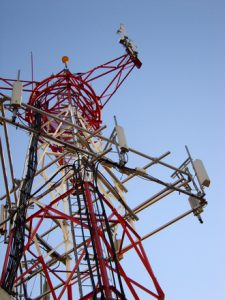New Illinois Law Mandates Warrants for Stingrays

On Friday, Illinois Governor Bruce Rauner signed a bill into law which requires law enforcement officials to obtain a warrant before deploying a stingray device to intercept a person’s cell phone communications to determine their location.
A stingray device is basically a cell phone simulator which intercepts the transmission from cell phones without anyone’s knowledge or consent. In some cases the stingray can intercept actual phone calls and text messages. The stingray tower will fool the cell phone into thinking it is communicating with the cell phone carrier’s cell phone tower when it is actually communicating with a tower that is being run and monitored by law enforcement agents. The stingray tower doesn’t just target one device. It will intercept the cell phone transmission of all the cell phones in a particular location. Unknown to anyone, law enforcement officials are listening to the conversations and intercepting text messages and other data communications. Law enforcement agencies have been using stingray towers for several years without any scrutiny. A few years ago in a federal drug case in California, federal agents claimed that they had received a tip from a confidential informant about the drug dealing activity of a defendant charged with dealing drugs. During the discovery phase, prosecutors mistakenly turned over documents to the defense which revealed the use of these stingray devices. Before this case, nobody had ever heard of such devices. The federal government sought to block the defense from obtaining any discovery about these devices claiming that national security would be compromised. The Court eventually ordered the government to turn over the stingray discovery to the defense but ultimately admitted the evidence obtained by the stingray device. In response to this case, the State of California passed legislation requiring that the police obtain a warrant before deploying a stingray. Several states, such as Washington, Virginia, Minnesota and Utah joined California and enacted a similar warrant requirement. Last year, the Department of Homeland Security and the Justice Department imposed rules which require that federal agents obtain a warrant before deploying a stingray.
Last month, for the first time, a federal judge, in a drug case, suppressed evidence that had been obtained by a stingray that had been used without a warrant. U.S. Drug Enforcement agents had used a stingray to locate a cell phone that had been used in a drug investigation. The agents used the stingray to track the cell phone to the Defendant’s apartment. U.S. District Judge William Pauley ruled that “absent a search warrant, the government may not turn a citizen’s cell phone into a tracking device.” The Judge suppressed all of the evidence obtained by the use of the stingray device. This marks the first time that any court has suppressed any evidence obtained by the use of a stingray.
On Friday, Illinois joined a growing number of states, and the federal government, in requiring a warrant prior to deploying a stingray device. The law will go into effect on January 1, 2017. The Chicago Police Department has indicated that they have been using stingray devices for several years. The Chicago Police Department has refused to turn over any information about their use of stingray devices. Recently, the Land of Lincoln, a local privacy activist organization, filed a Freedom of Information lawsuit against the Chicago Police Department demanding that the Chicago Police Department be forced to turn over their evidence of the use of the Stingray device. That law suit is still pending. Criminal defense attorneys are watching this case closely to see if law enforcement claims of tips by “confidential informants” in criminal cases was actually information obtained by stingray devices. If this lawsuit results in evidence that police had lied about the information obtained to secure warrants, this could result in old cases being reopened and being brought back into court.
James Dimeas is an award winning Chicago criminal defense attorney and author with more than 23 years of experience aggressively representing his clients against drug charges. If you have a drug case in Illinois, contact me in Chicago (312-229-5500), DuPage and Kane (630-504-2096) or Lake (847-696-6458) for a free and confidential consultation to discuss your legal options.
Additional Resources:
More Blog Posts:
DEA Considering Reclassifying Marijuana


